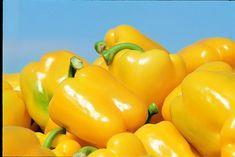

The introduction of a computerised system has paid dividends for one winter salad producer.
David Crossland, UK marketing manager with Israeli based Arava Exporter Growers, said: “The most significant thing we’ve done this year has been to introduce a computerised traceability system called Agrosafe.”
He said the system was trialled among a small group of growers last year and has now been rolled out across its entire grower base.
“It’s a major step forward for us and it’s been a major improvement for everyone. It has been a phenomenal success,” said Crossland.
“From the grower’s point of view it has meant efficiencies in how they manage and keep their records.
“Meanwhile, from our point of view it means we can monitor the growers’ records from our office, which makes the supply chain more efficient.
He said the next step will be to roll it out to the company’s clients and make the information available to them through the internet. “They can dial in using passwords and get access to crop records and all the information they need. That’s going to be a big advantage for them.”
Crossland said Arava is constantly striving to improve its products and is always looking to reduce dependency on chemical use.
“The lists of chemicals we can use is reducing year-on-year and we need to stay one step ahead of that.
“Also with the increasing use of biological controls, using insects such as bees and others, we have to be even more careful about what kind of chemicals are used.”
In terms of what the winter season is likely to hold for them, Crossland said it was still a little too early to tell: “Our season on peppers only started two or three weeks ago, so it’s difficult to say accurately what will happen as things progress.”
He said pepper production has risen, but demand was also rising in the UK market and he is anticipating a significant rise in volumes to around 15,000 tonnes, from around 11,000 last year.
On the speciality tomato scene he said it is unlikely the market will expand. “We’re seeing a slight reduction in production over in Israel. This is down to recent poor prices and growers are switching to peppers which offer the opportunity for better returns.”
Crossland said he expected to see a slight fall in the volume of speciality tomatoes shipped to the UK, at around 300t, made up of Aranca, cherry and on-the-vine cherry, as well as organic produce.
On the herb front he said volumes were rising steadily by around 12 to 14 per cent compared with last year and he expected Arava to ship around 2,500t to the UK this year.
“We’re seeing increasing demands for fresh herbs, and we’re quite pleased with that.”
While the company’s main strength has been in supplying the retail sector, Crossland said they were also starting to see a new opportunity developing in the foodservice and processing sectors.
“It’s a much smaller proportion of our business, but it’s increasing and I think it will, over the coming years become more significant.
“Admittedly it’s growing off a lower base at the moment, but it’s still good to have that growth.
“Sales to the retailers aren’t exactly stagnant, but they’re not increasing significantly, so it’s good that the foodservice and processing industry are giving us an opportunity to expand the business,” he added.



